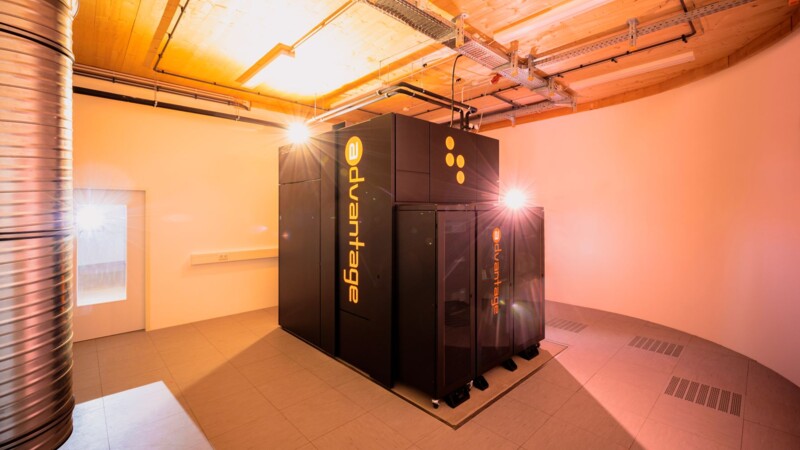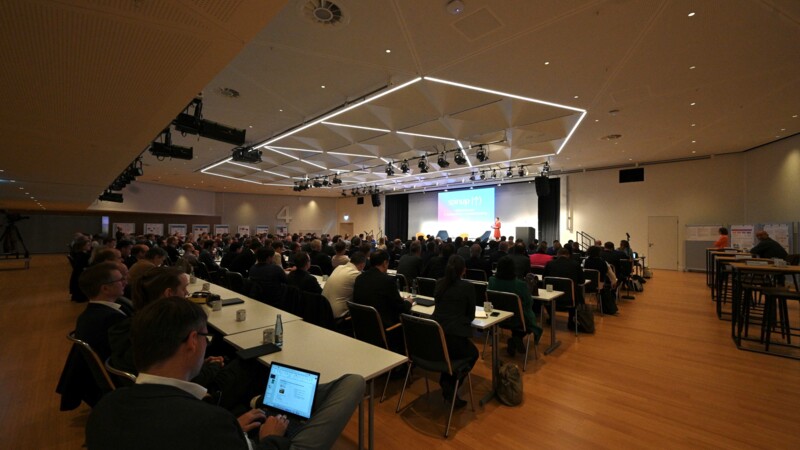"We want to bring quantum computing from theory to application and are taking an open-minded approach to the technology," said Dr Robert Axmann, Head of the DLR Quantum Computing Initiative. Several quantum computers based are being developed based on different technologies. Ion traps are used mainly in Hamburg while photonic processors, neutral atom systems and nitrogen vacancies in diamond are used in Ulm. The different approaches have pros and cons in terms of refrigeration or susceptibility to errors. It remains to be seen which approach will prevail.
Quantum computing promises true miracles and is expected to counter climate change, identify new active ingredients for medicine and to optimize flights and shipping routes. Research is being stepped up worldwide and Germany aims to become one of the main movers and shakers in the field. The goal is to develop a powerful, universal quantum computer by 2026. Research in Hamburg and especially by the Quantum Computing Initiative of the German Aerospace Center (DLR) is key to this course. Now, the German Ministry for Economics and Climate Protection has made EUR 740 million available to develop prototype quantum computers at the DLR Innovation Centers in Hamburg and Ulm through 2027.
Open-minded approach to technology

Quantum computer versus supercomputer
Researchers are working on two basic problems. "The hardware is still too error-prone. We are also trying to ramp up the number of qubits. That involves comparing quantum computing with existing supercomputers. Parallel to developing quantum computers, supercomputers are being improved somewhat," said Axmann. However, quantum computers are likely to prove far more powerful than supercomputers. Scientists are convinced of the long-term advantage of quantum computing. "We know that there will be a mathematically- proven potential acceleration of quantum computers, which gives them a clear edge over supercomputers. So there is a technological mathematical usage approach for which we just need to develop the hardware."

Potential of quantum computers for
1) Aerospace and shipping
"Quantum computing is particularly suitable for optimisation in aviation," said Axmann. Such approaches can be applied to maintenance, flight planning and flight routes, gate assignment or air-cargo distribution. "Naturally, we at DLR are heavily involved with applications in air traffic and space travel. But these applications can also be transferred to shipping e.g., route planning, ship loading and unloading to quay allocation and warehouse planning."
2) Medicine
Computers are already being used to develop new medicines. "Quantum computers could simulate molecular biological or chemical systems much faster and more effectively," Axmann stressed. Quantum computing could also be used to develop even more individual and effective therapies faster and to calculate interactions between different active substances.
3) Climate change
What factors are driving climate change and what measures could be taken to stop the development? "Here, too, quantum computers could improve complex models and simulations," said Axmann. New means of containing and removing emissions are conceivable, or removing existing carbon from the atmosphere.
German technological sovereignty
Such applications are still a long way off, Axmann pointed, but stressed:. "We are gaining new insights every day and are approaching the technological breakthrough of error-corrected, gate-based quantum computers. These systems are crucial for Germany's technological sovereignty in future."
ys/pb
Sources and further information
More
Similar articles

Senate approves EUR 34.1 million for quantum computing in Hamburg

German Aerospace Center opens new institute

